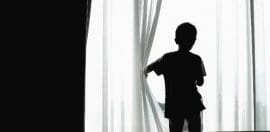Hollywood urged to get more people with disability on television

6 February 2020 at 3:52 pm
The Ruderman Family Foundation says disability remains glaringly absent from Hollywood’s discourse on diversity
Only one in five characters with disability on American television shows are portrayed authentically by an actor with the same disability, new research shows.
A new white paper from the Ruderman Family Foundation criticised the state of disability representation on American television screens, after analysing 284 shows across 37 TV networks and four streaming platforms.
It found just 22 per cent of all characters with disability were portrayed authentically by an actor with the same disability, with a total of 45 authentically represented characters with disability across 33 shows.
The report found that in 2018, 12 per cent of characters with disability were authentically cast in the top 10 network TV shows of that year, an improvement from the 5 per cent representation rate found in 2016.
But foundation president Jay Ruderman said there was still a long way to go.
“Disability remains glaringly absent from Hollywood’s discourse on diversity,” Ruderman said in the report.
“Even where disability is present in television and films, it is almost always portrayed as an undesired, depressing and limiting state. This misrepresentation influences public perception of disability and people with disabilities.”
Two shows were found to be major sources of authentic representation, “This Close” on Sundance Now and “Atypical” on Netflix.
Both shows centre on the lives of people with disability and accounted for 16 per cent of all authentic casting – although the lead character of Atypical, who is autistic, is played by a non-autistic actor.
The report also criticised inaccurate representation of disability and inequality on screen.
It noted that shows such as “The Witcher” on Netflix and “The Good Doctor” on ABC “indicate the misrepresentation of physical, cognitive and mental health disabilities”.
“Mainly, the portrayal of these characters is stereotypical and inaccurate,” the report said.
This research mimics findings from a 2019 study on UK pre-school programs, which said more than half of the shows that featured characters with disability used them either in a tokenistic way, or used their disability negatively to make them appear sinister or threatening.
Ruderman said this latest research provided Hollywood with empirical evidence that more unique narratives and diverse characters were needed to foster a more inclusive landscape.
“At a time when the entertainment industry is advocating for inclusion, it is crucial that we continue to advance the cultural recognition of people with disabilities and create more opportunities for them in television and film,” he said.







